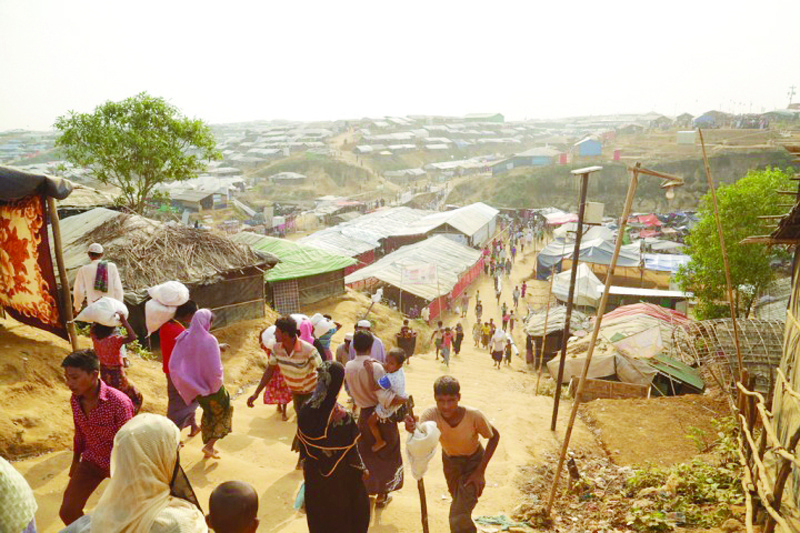
DHAKA: A turf war raging between criminal armed groups in Rohingya refugee camps in southern Bangladesh has forced thousands of people to flee and at least eight have been killed in clashes in recent days, police and humanitarian workers said yesterday. Authorities have arrested 12 people after days of gunfire, arson, and abductions by gangs competing for dominance in the sprawling settlement, the world's largest refugee camp home to more than a million people.
"A tense situation is prevailing there," Rafiqul Islam, an additional police superintendent based in the nearest town of Cox's Bazar, told Reuters by phone. "Two groups are trying to establish dominance in the area," he said, adding that they were suspected drug and human traffickers. The region is a crucible of the lucrative trade in methamphetamine, mostly manufactured across the border in Myanmar. More than 100 Rohingya have been killed since 2018 in incidents human rights groups say are extrajudicial killings but police say the victims were caught in the "cross-fire" during shootouts with suspected drug smugglers.
Three refugees speaking on condition of anonymity named the two groups behind the fighting as the "Munna" gang, named after a notorious local alleged drug baron, and the Arakan Rohingya Salvation Army (ARSA), an armed group that has a presence in the sprawling camps and that refugees have accused of carrying out kidnappings and attacks. In a Twitter post, ARSA denied responsibility for the latest violence and blamed criminals seeking to cast aspersions on the group.
Attacks by ARSA on police posts in Myanmar in 2017 triggered a sweeping military crackdown that led more than 730,000 Rohingya to flee to Bangladesh. About 2,000 Rohingya families were displaced in the latest violence, though some had returned by yesterday, according to additional refugee relief and repatriation commissioner Mohammad Shamsu Douza. "We are living in fear, especially at night," one of the refugees told Reuters by phone. "Last night also, one group carried out an arson attack. Where will we go now?" - Reuters










